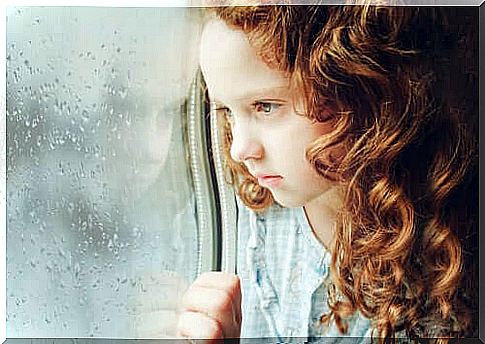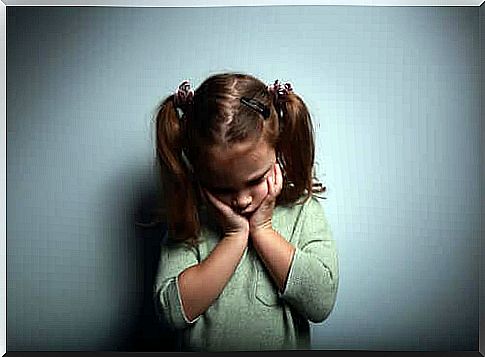Do Children Feel Empty And Alone Like Adults?

Do children also feel empty or lonely? Let’s find out next.
Sometimes we feel hopeless, lonely, restless, and we can’t exactly identify why. We didn’t find any explanation.
It’s a difficult feeling to describe, but anyone who has felt it easily recognizes it. It’s as if our lives lack meaning, as if we lack a purpose, an end…

The feeling of emptiness and loneliness in children
Children feel empty and alone, just like adults, and the reasons for this are sometimes more similar than we can imagine.
Not feeling affection from our inner circle can make us feel like we have a hole in our stomach that we don’t know how to fill. With children, the same thing happens.
There are many little ones who do not perceive the affection of their attachment figures, which leads them to develop an emotional emptiness that, in many cases, ends up transforming into a syndrome of affective need.
It is a psychological maladjustment that occurs when the child suffers an affective deprivation and is expressed with behaviors of hostility towards the figures of attachment, feelings of dependence, anxiety, jealousy and dissatisfaction or need for constant affection.
As parents, nothing hurts more than knowing our kids feel that way. Therefore, we can follow some advice to avoid the emotional emptiness of children. The goal is to make them feel safe and loved.
How to prevent children from feeling empty and alone
It’s true that sometimes, no matter how hard we try, it’s difficult to coordinate our schedule with our children. Day-to-day obligations, working hours, English classes, the gym, sports, homework…
Sometimes we need a schedule to balance our lives with our children, and this lack of time has an impact on the need to take care of family bonds and ties.
Below, we will leave some brief guidelines so that you can become aware of this reality and be able to avoid it.
- Make children feel important and demonstrate how much they are loved. It is essential that our children feel wanted and important in the family. Phrases such as “I love you so much” or “how nice it is to receive this hug when you get home” will make them feel necessary pieces for our well-being. In addition, we promote a secure affective bond and a sense of belonging.
- Spend quality time together. With full attention. Cell phones turned off. Real, intimate conversations. Talking about life, dreams, goals… Sharing our thoughts with them will make them share theirs with us too.
- Having non-material details with our children. There are very simple things that we can demonstrate to our children that we always consider them and that we don’t need to invest a lot of time or money into. For example, calling them when we’re heading home, leaving a note in the morning wishing them good morning, or picking them up before extracurricular activities to do something unexpected together.

In children, emotional emptiness is more related to a lack of proper love bonds rather than finding life’s purpose or feeling disoriented about the future. However, this last point can also occur.
The safer and more loved a child feels, the easier it will be for them to develop good self-esteem, healthy self-knowledge and a sense of adequate security in their relationships, which will likely turn them into a more resilient adult.
And resilience will undoubtedly help you better cope with life’s unforeseen circumstances.









